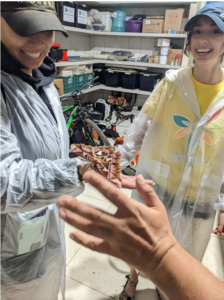Heritage University to hold Class of 2023 Commencement at Yakima Valley SunDome
FOR IMMEDIATE RELEASE
Heritage University to hold Class of 2023 Commencement at
Yakima Valley SunDome
Yakima, Wash. – Heritage University will celebrate the Class of 2023 during its Commencement Exercise Saturday, May 13 at 10:00 a.m. at the Yakima Valley SunDome. Undergraduate and graduate degrees will be conferred upon students graduating from both the Heritage Toppenish campus and at the Tri-Cities regional site. Overall, 250 students will earn their degrees at Heritage this year.
Phyllis Gutiérrez Kenney, former state representative of the 46th legislative district from 1997 to 2012, will be the commencement speaker. A former small-business owner, she was a delegate to the White House Conference on Small Business, President of the Hispanic Chamber of Commerce and Assistant Commissioner for the Employment Security Department. Since 2015, Ms. Gutiérrez Kenney has served on the nine-member State Board for Community and Technical Colleges, which provides oversight to Washington’s 34 community and technical colleges. She currently serves as board chair.
Passionate about educational opportunity, Ms. Gutiérrez Kenney was past chair of the Seattle Community College District Board of Trustees and former commissioner on the Western Interstate Commission for Higher Education. She was a board member for the National Council of La Raza and National Center for Policy Alternatives. She also authorized numerous pieces of legislation concerning postsecondary education during her time in the legislature.
Heritage University will present the 2023 Violet Lumley Rau Outstanding Alumni Award to Ryan Washburn for his exceptional service to his country and community. Washburn earned his B.A. in Interdisciplinary Studies in Education from Heritage University in 2012, and his M.S.W. from Walla Walla University in Walla Walla, Wash. He currently works for Benton County in Kennewick Wash. as a therapeutic court coordinator.
Washburn’s commitment to helping others started long before he attended Heritage University. Ryan dedicated eight years of his life to the United States Navy as a fire control technician where he oversaw Tomahawk missile systems. After leaving the military, he earned his degrees.
After graduation, Washburn became the first case manager for Benton County’s newly established Veteran’s Court. He served veterans who struggled with substance abuse and mental health issues by getting them treatment and counseling to overcome their challenges. He was later promoted to run the Therapeutic Recovery Center, which oversees the Mental Health Court.
Heritage will also announce the recipients of the Board of Directors’ Academic Excellence Award and the President’s Council Student Award of Distinction during the ceremony.
The Yakima Valley SunDome is located at 1301 South Fair Ave. in Yakima. Parking is free. Additional information is available online at https://heritage.edu/student-resources/commencement-2023/
For more information, contact David Mance, media relations coordinator at (509) 969-6084 or Mance_D@Heritage.edu.
# # #


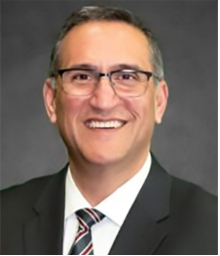 Mike Villarreal (M.Ed., Educational Administration) was elected to serve as president of the Washington Association of School Administrators for the 2002-23 academic year. Villarreal is the superintendent of Hoquiam School District, a position he’s filled since 2017.
Mike Villarreal (M.Ed., Educational Administration) was elected to serve as president of the Washington Association of School Administrators for the 2002-23 academic year. Villarreal is the superintendent of Hoquiam School District, a position he’s filled since 2017.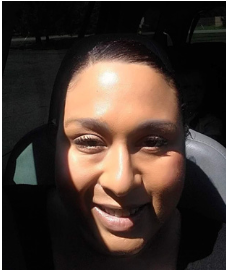
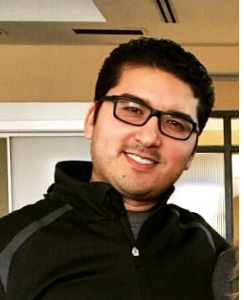 Francisco Ramirez-Amezcua (B.A., Environmental Studies) is a migrant graduation specialist at Sunnyside High School. This past fall, he was awarded Student Support Staff of the Year for the Sunnyside School District.
Francisco Ramirez-Amezcua (B.A., Environmental Studies) is a migrant graduation specialist at Sunnyside High School. This past fall, he was awarded Student Support Staff of the Year for the Sunnyside School District.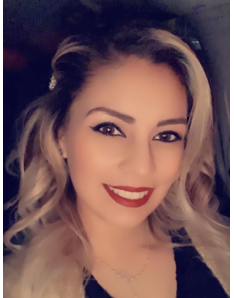 Dalia Chavez (B.A., Criminal Justice) joined the Washington State Human Rights Commission (WSHRC), where she serves as a civil rights investigator based in the Yakima Valley. The WSHRC is a state agency responsible for administering and enforcing the Washington Law Against Discrimination.
Dalia Chavez (B.A., Criminal Justice) joined the Washington State Human Rights Commission (WSHRC), where she serves as a civil rights investigator based in the Yakima Valley. The WSHRC is a state agency responsible for administering and enforcing the Washington Law Against Discrimination.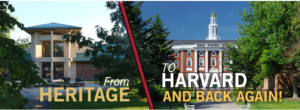
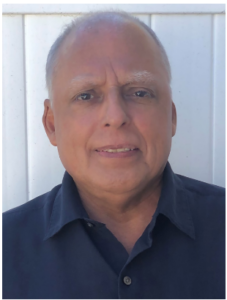
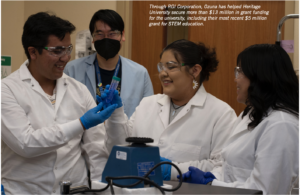
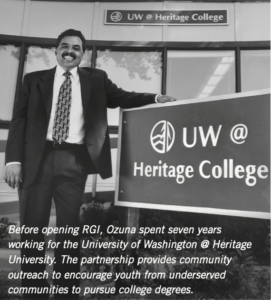 “I had worked with students and families one- on-one,” he says. “Instead of touching lives one at a time, I wanted my work to have a positive effect on as many people as possible, to do things on more of a macro instead of a micro level.”
“I had worked with students and families one- on-one,” he says. “Instead of touching lives one at a time, I wanted my work to have a positive effect on as many people as possible, to do things on more of a macro instead of a micro level.”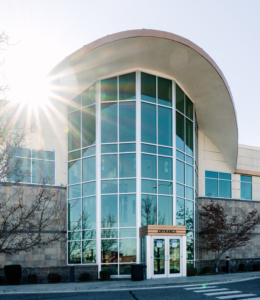
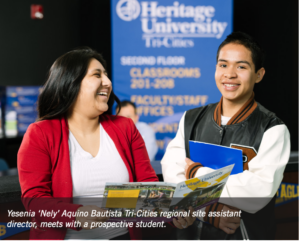 “Students will have the opportunity to transfer seamlessly between campuses, and some classes may be offered in a hybrid format where classes are delivered both in-class and online between the two campuses. The linkage between the two campuses will present a tremendous range of possibilities for students to study in their field of interest,” said Sund.
“Students will have the opportunity to transfer seamlessly between campuses, and some classes may be offered in a hybrid format where classes are delivered both in-class and online between the two campuses. The linkage between the two campuses will present a tremendous range of possibilities for students to study in their field of interest,” said Sund.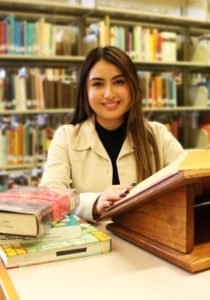
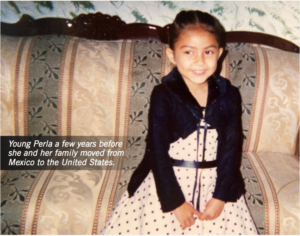
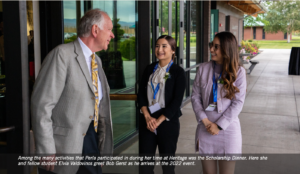

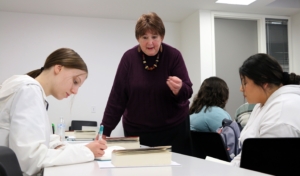
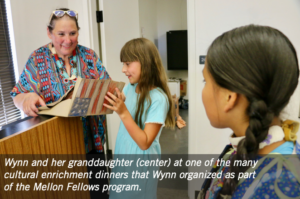
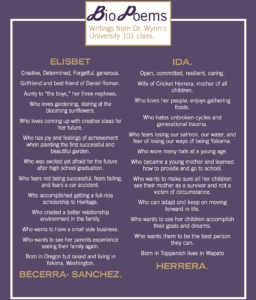
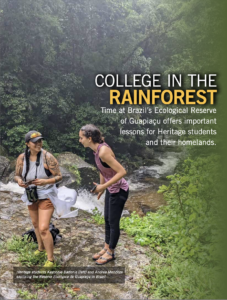
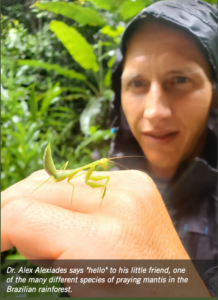
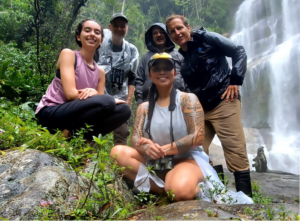 In the native Tupi language, Guapiaçu means “big spring of a river.” But the river here, like the rainforest that holds it, has been greatly altered, its banks laid bare for farming and grazing cattle, its flow in part channeled for human use, sometimes reinforced with concrete.
In the native Tupi language, Guapiaçu means “big spring of a river.” But the river here, like the rainforest that holds it, has been greatly altered, its banks laid bare for farming and grazing cattle, its flow in part channeled for human use, sometimes reinforced with concrete.